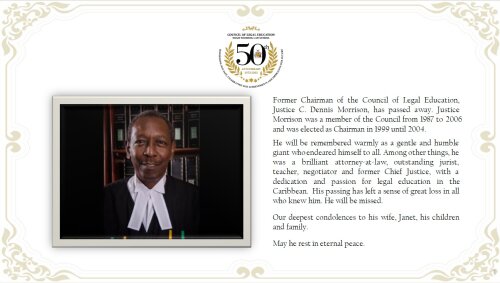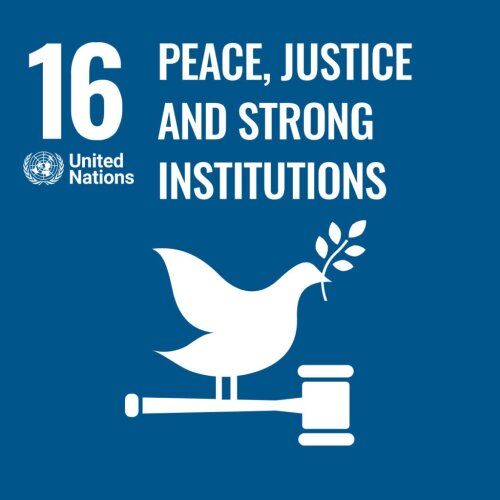Best Dependent Visa Lawyers in Trinidad and Tobago
Share your needs with us, get contacted by law firms.
Free. Takes 2 min.
Or refine your search by selecting a city:
List of the best lawyers in Trinidad and Tobago
About Dependent Visa Law in Trinidad and Tobago
In Trinidad and Tobago, a Dependent Visa allows the family members of individuals who are legally residing or working in the country to join them. This visa is primarily intended for spouses, children under the age of 18, and sometimes other dependents such as elderly parents, depending on specific circumstances. The purpose of this visa is to allow the family unit to remain intact during the duration of the primary resident's stay in Trinidad and Tobago. The application process involves providing substantial documentation to prove dependency and the primary resident's legal status and ability to financially support the dependents.
Why You May Need a Lawyer
Seeking legal assistance in Dependent Visa matters in Trinidad and Tobago can be crucial in several scenarios. A lawyer can assist in ensuring that all submitted documentation is both comprehensive and compliant with local immigration laws, thus avoiding potential delays or denials. Legal counsel may also be necessary if the dependent's relationship to the primary resident is complex, such as in cases involving stepchildren, adopted children, or common-law partners. Additionally, if there has been any prior legal infringement or immigration violation, a lawyer can provide guidance and representation to navigate these challenges effectively.
Local Laws Overview
The Immigration Act of Trinidad and Tobago governs the issuance of visas, including Dependent Visas. Key aspects include the requirement for the primary visa holder to have a valid work permit or permanent residency status. Dependents must demonstrate their relationship to the primary resident clearly through authenticated documents like marriage certificates or birth certificates. There are also legal stipulations relating to the duration of the dependent's stay, typically linked to the primary resident's visa duration. Compliance with these laws ensures the dependent's lawful presence in Trinidad and Tobago.
Frequently Asked Questions
1. What documents are required for a Dependent Visa application?
The application generally requires a valid passport, a completed visa application form, proof of relationship to the primary resident, and proof of the primary resident's legal status and financial capability in Trinidad and Tobago.
2. How long does it take to process a Dependent Visa?
Processing times may vary, but it typically takes several weeks. Applicants are advised to apply well in advance of their intended travel date.
3. Can a dependent work in Trinidad and Tobago on a Dependent Visa?
No, dependents are not entitled to work unless they apply for a work permit independently.
4. Can a Dependent Visa be extended?
Yes, provided that the primary resident's visa or status is extended, and sufficient proof of dependency is maintained.
5. Can I appeal a Dependent Visa denial?
Yes, there is a process for appealing a denial which typically involves submitting additional evidence or documentation.
6. Are common-law partners eligible for a Dependent Visa?
Common-law partners can be eligible, but they must provide evidence of their relationship, such as shared financial responsibilities or cohabitation.
7. Do dependents need a medical examination?
Yes, dependents are usually required to undergo a medical examination to ensure their health complies with immigration requirements.
8. Can school-age children attend school in Trinidad and Tobago on a Dependent Visa?
Yes, school-age children can attend public or private schools while on a Dependent Visa.
9. What happens if the primary resident returns to their home country?
If the primary resident leaves Trinidad and Tobago permanently, the dependents must also leave unless they obtain a different visa or residency status independently.
10. Can I apply for permanent residency while on a Dependent Visa?
Dependents may apply for permanent residency if they meet certain criteria, which often involve the primary resident obtaining residency first.
Additional Resources
For more information, individuals can consult the Ministry of National Security, which oversees immigration services, or visit their local immigration office. Legal aid organizations and immigration consultants can also provide guidance. Consider reviewing the official Immigration Act for detailed legal provisions related to Dependent Visas in Trinidad and Tobago.
Next Steps
If you require legal assistance, it is advisable to contact an immigration lawyer who specializes in Dependent Visas. Prepare all necessary documentation and consider having a preliminary consultation to discuss your specific circumstances. Research and choose a qualified legal practitioner to ensure you navigate the legal process effectively.
Lawzana helps you find the best lawyers and law firms in Trinidad and Tobago through a curated and pre-screened list of qualified legal professionals. Our platform offers rankings and detailed profiles of attorneys and law firms, allowing you to compare based on practice areas, including Dependent Visa, experience, and client feedback.
Each profile includes a description of the firm's areas of practice, client reviews, team members and partners, year of establishment, spoken languages, office locations, contact information, social media presence, and any published articles or resources. Most firms on our platform speak English and are experienced in both local and international legal matters.
Get a quote from top-rated law firms in Trinidad and Tobago — quickly, securely, and without unnecessary hassle.
Disclaimer:
The information provided on this page is for general informational purposes only and does not constitute legal advice. While we strive to ensure the accuracy and relevance of the content, legal information may change over time, and interpretations of the law can vary. You should always consult with a qualified legal professional for advice specific to your situation.
We disclaim all liability for actions taken or not taken based on the content of this page. If you believe any information is incorrect or outdated, please contact us, and we will review and update it where appropriate.
Browse dependent visa law firms by city in Trinidad and Tobago
Refine your search by selecting a city.














